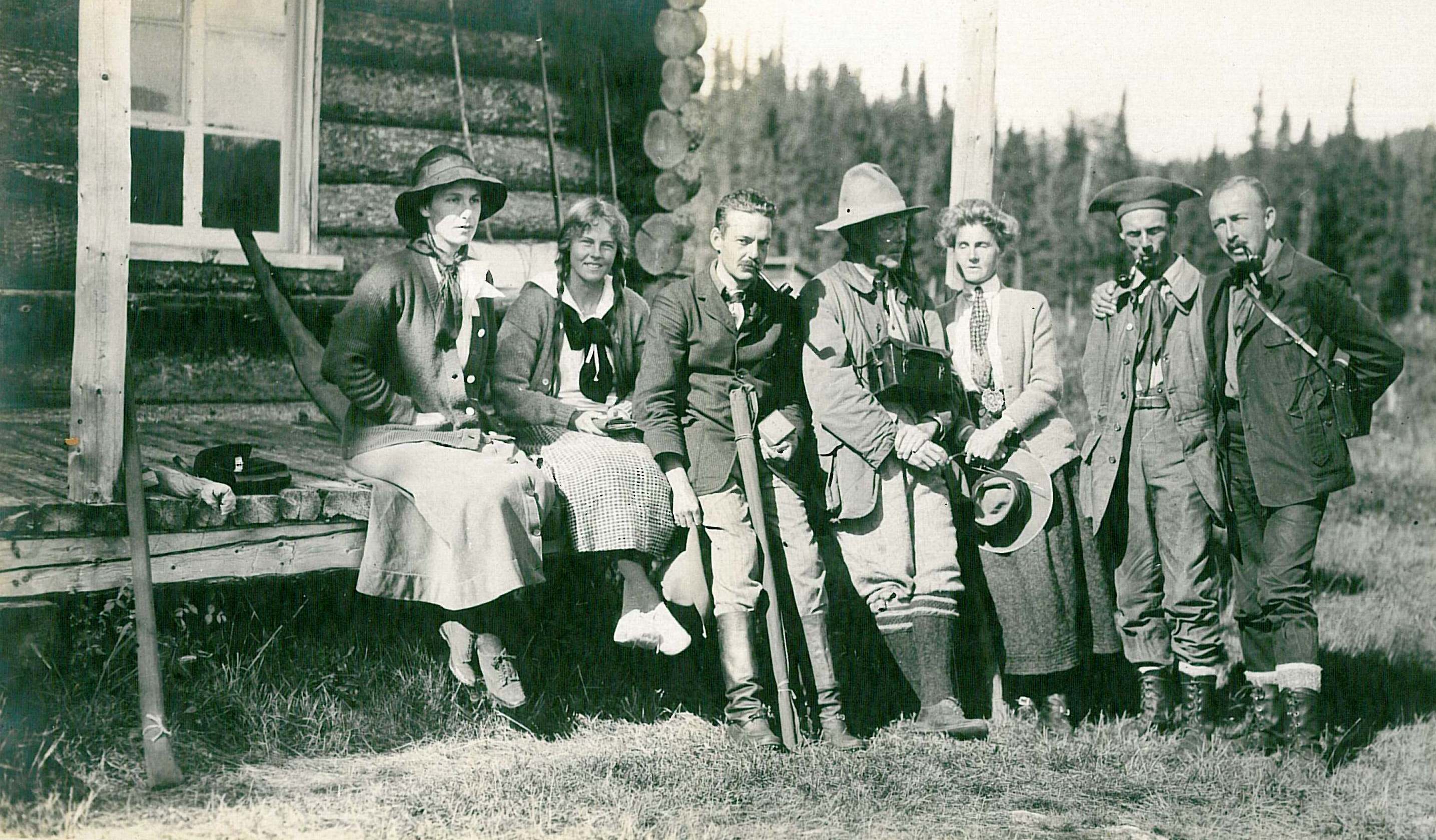
Four-wheeled carriages in front of Auberge de La Galette, Saint-Urbain.
© Musée de Charlevoix, Mackenzie coll.
Fishing and hunting expeditions were opportunities ;to get away from work and daily cares, but also away from “respectable” cronies who didn’t like to get their hands dirty! Mosquitoes, the discomfort of sleeping in tents and the challenges of stalking game or fish weren’t for everyone!
William Hume Blake eloquently described the mood of these expeditions. While they did not always stay in a tent or camp as comfortable as those reserved for the sportsmen who hired them, the guides played an indispensable and well-appreciated role. They actively planned the day’s activities in the forest and, once their duties fulfilled, guides would hunt or fish alongside their employers, silently sharing the same love for this sport and for life in nature.
At the end of the 19th century, wives would occasionally accompany their husbands on these expeditions, and not only as observers. Many old photographs show them hunting or fishing alongside their men.
William can be seen in the centre of this photograph and his wife on the right.

